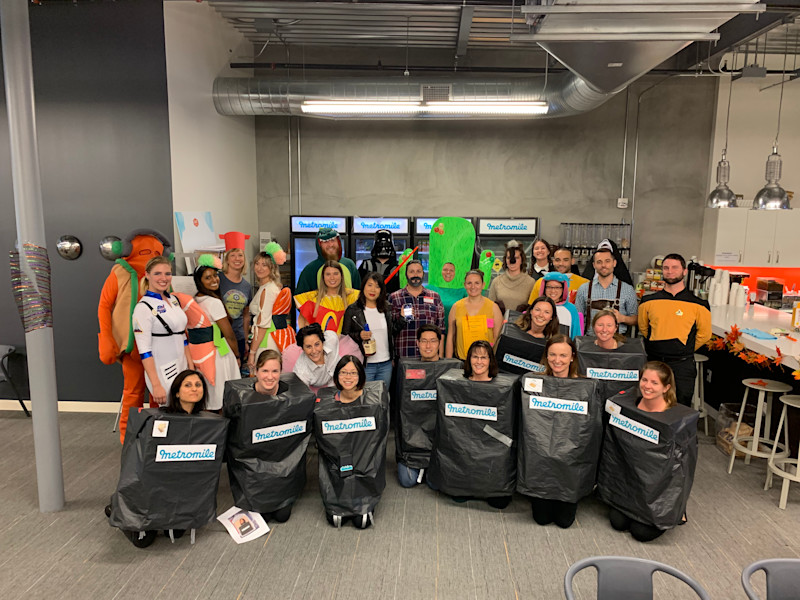- Iterate
- Meet The Team
- With $300M Raised, Here's the Secret to MetroMile's Success
With $300M Raised, Here's the Secret to MetroMile's Success
Convincing people to put a data-tracking device in their cars is not necessarily an easy thing to do for most companies, especially in an era where corporate data malfeasance is not uncommon, but not for MetroMile.

Historically, the process of signing up for car insurance left a lot to be desired. You’d get on the phone, explain your situation to a stranger, and then get a flat quote that may or may not have made sense. From there, you’d be paying the same rate a month regardless of how much you actually ended up driving.
So for a disruptive car insurance startup like MetroMile, flipping that model on its head was the logical move. Founded in 2011, the company allows customers to customize their car insurance by paying by the mile. They also have features like a sleek mobile app, alerts for when a car could be ticketed, and tracking for lost or stolen cars.
MetroMile is able to do this with a physical tracker, the Metromile Pulse device, that is installed in customer’s cars. It does things like count miles, analyze engine health, and map out street sweeping routes — in short, it collects and analyzes driving and parking data.
Convincing people to put a data-tracking device in their cars is not necessarily an easy thing to do for most companies, especially in an era where corporate data malfeasance is not uncommon, but not for MetroMile. The company now insures hundreds of thousands of drivers in the U.S. and has raised almost $300M in funding in large part due to the trust they’ve been able to earn from their customers.
How did they build those relationships and earn that trust? It’s not just with cheaper rates or a nice mobile app. It’s through transparency.
“From the beginning, everything was thought about in a way of, well, if we're collecting some data from our customers, we need to provide clear value and it needs to be presented directly,” said Rick Chen, Director of Communications at MetroMile. “If you're giving us location data, we need to be able to clearly show you how that lowers the cost of your insurance. There's a very clear line. Yes, we're asking something from you, but here's exactly what it allows us to do and here’s how we're going to return that value to you right away.”
Internally, MetroMile has tried to match that transparency in its workforce. CEO Dan Preston holds a weekly Q+A with the entire staff, no small feat for a 235-person company, where employees submit questions through a slider system that everyone else can see. Preston answers them all -- good, bad, and hard questions alike, no matter how long it takes. There have been times when junior employees, being closest to the customer, feel empowered enough to request a tweak in what data the company is collecting. That doesn’t happen everywhere.
“Transparency is our secret ingredient to being able to attract the right kinds of candidates,” said Mark Gundacker, MetroMile’s Chief People Officer. “If you're an insurance person that has always worked insurance and want to do it the same way you've been doing for years, this isn't the right place for you. It's really been able to help us attract some of the best and the brightest because it's people who want to think about things in a different way.”
Gundacker, who has worked at companies like Salesforce and Bank of America in his career, says that he’s never seen a company that works together like this one does. Being able to challenge ideas has led to a team that inspires and trusts each other, even during difficult internal conversations.
This summer, for example, after the Black Lives Matter movement finally reached corporate America, Gundacker says they had several company-wide conversations about racial inequality that led to some major internal shifts. Employees went through additional diversity training, the company changed some wording on its job listings to stress complete inclusion, and perhaps most impressively, MetroMile shifted the structure of their meetings to ensure everybody’s voice was being heard.
As the startup continues its rapid growth, the goal is that this level of openness to both its customers and staff will continue to shape MetroMile. Transparency was not just helpful for building a team — it will be crucial for long-term success as well.
“I think when you are hiring for people who want to be engaged in what they do in work, that engagement not only makes it just more fun for everybody to be there, but it ultimately gets you to a better product, a better design, and a better customer experience,” Gundacker said. “For us, the only way that our people are going to be engaged is if we're giving them opportunities to be innovative. Those are the type of people we hire. And it’s hard to be innovative without the entire picture, so transparency is a big part of helping them be innovative.”

--
The Org is a professional community where transparent companies can show off their team to the world. Join your company here to add yourself to the org chart!


The ORG helps
you hire great
candidates
Free to use – try today